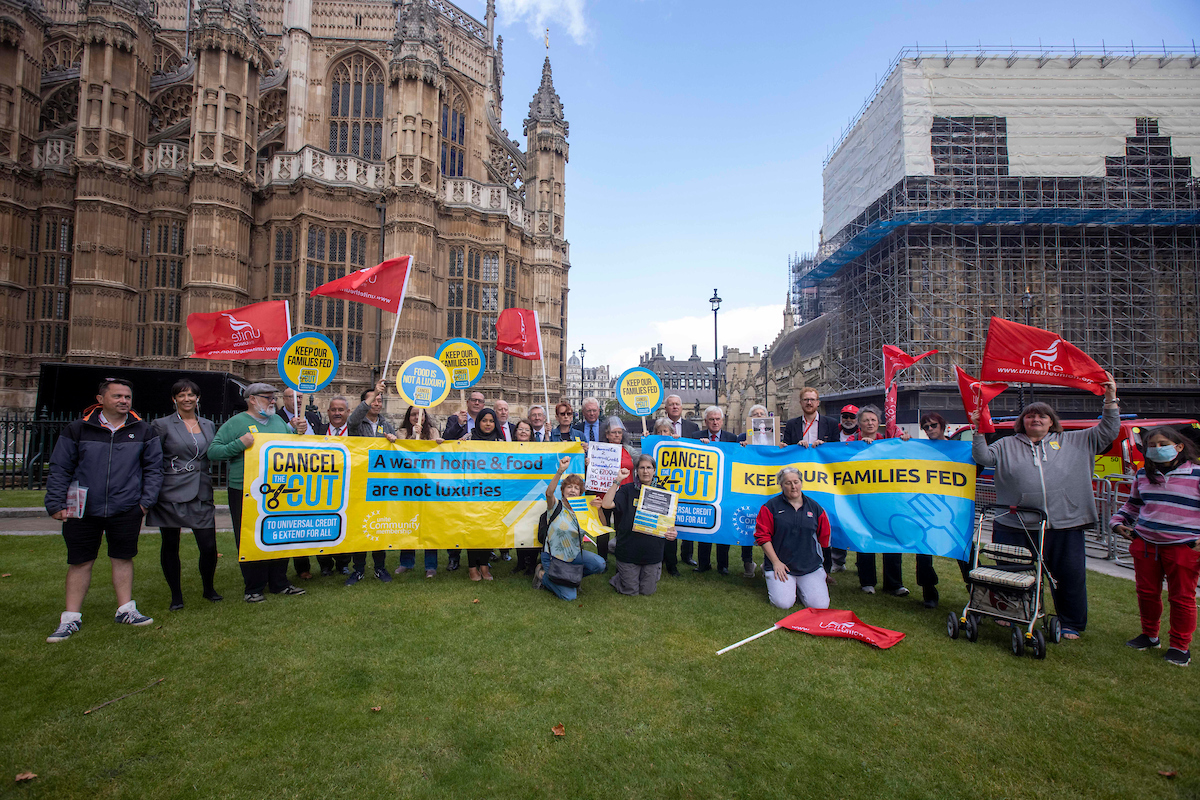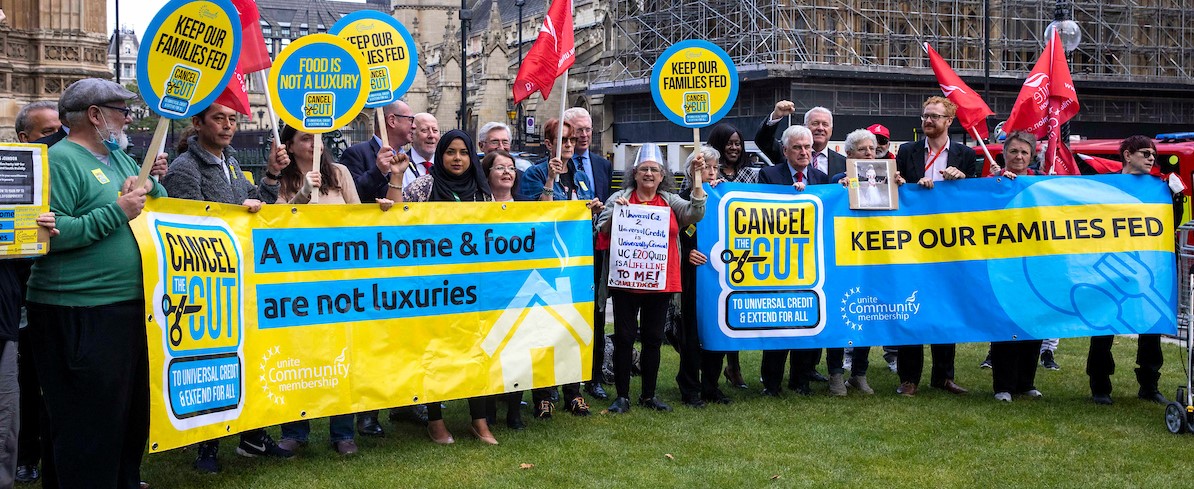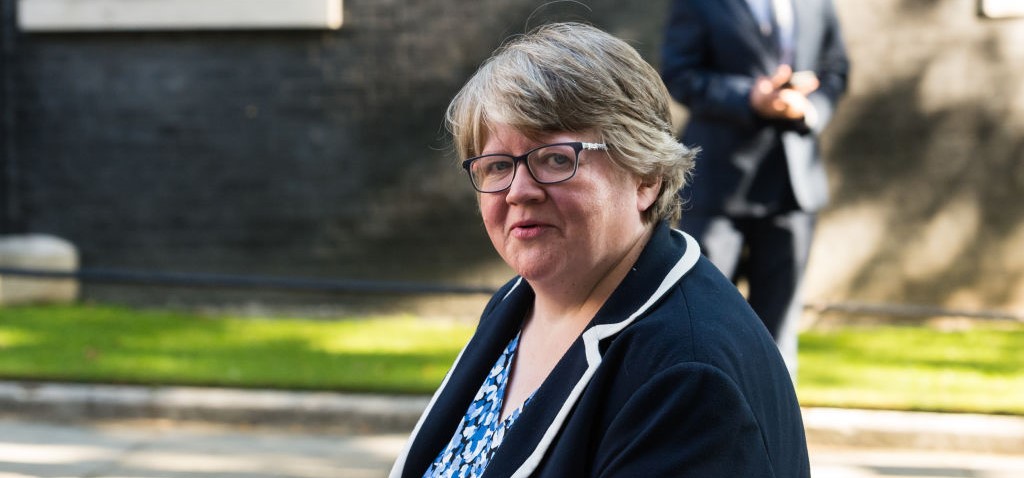‘Hostile environment’
When the new benefits sanctions regime was first introduced in 2012, prime minister David Cameron’s Conservative government proudly declared it was ending the so-called “something for nothing culture.”
Six years later, the untold damage the system has wrought – for the disabled, for struggling families, for those who’ve lost their jobs through no fault of their own – has been widely reported.
But after millions of people have had their social security entitlements stopped, suffering hunger, homelessness and in some cases even death, was it all, in the government’s eyes, worth it?
That is to say, have benefits sanctions worked on their own terms – have they, as the Department of Work and Pensions (DWP) has said for years, really got people back into work?
â€Do I eat or do I have light?’
The most comprehensive study ever conducted on benefits sanctions – undertaken by researchers from six different UK universities over a five-year period — was published this week (May 22), and their answer is a resounding no.
The Welfare Conditionality project, funded by the Economic and Social Research Council, tracked hundreds of people who were sanctioned to discover how they fared both in the short- and long-term over multiple years.
“Benefit sanctions do little to enhance people’s motivation to prepare for, seek or enter paid work. They routinely trigger profoundly negative personal, financial, health and behavioural outcomes,” the study concluded.
Researchers spoke to people who were instantly cut off from basic necessities like food and heating after being sanctioned.
“[My gas and electric] fell into that much arrears,” a single parent they interviewed recounted. “I was without heating for ages…I pawned everything I had… You’re literally going, â€Do I eat or do I have light?’”
Others dropped out of the system altogether because being subjected to jobcentre harassment and needless box-ticking exercises embedded in the sanctions regime had become too much – one person interviewed for the project turned to dealing drugs instead.
“Drug dealing. That’s what I did…That sanction… turned me to crime and making my money,” the man, now homeless, told the researchers. “And then after that I was making that much money I didn’t need their [benefit] money.”
Many people reported that both their physical and mental health badly deteriorated after having been sanctioned, while others were pushed into poverty and in some cases total destitution.
Universal Credit
The introduction of Universal Credit – which rolls six benefits, including housing benefit, child tax credits, and working tax credits among others, into one – has amplified the cruel sanctions regime. Now, even people in work can be sanctioned if they aren’t working enough hours.
One Universal Credit claimant highlighted the absurdity of being threatened with more sanctions if he didn’t find more work.
“I go down [to JobCentre Plus] and say, â€Look, I’m doing 16 hours with more hours promised.’[The work coach says] â€Well you’ll have to look for another job,’” he explained. “I’ve got my employer on one hand wants me to do mornings and would like me to do an evening shift, you know. I never get told what day I’m working. So, I can’t go to another employer and say, â€Look…I can probably fit in another 20 hours work a week but I don’t know when I can work for you’.”
Universal Credit has been riddled with many other problems beyond sanctions, Unite has highlighted. Universal Claimants must apply online – with no other option – leaving many elderly, disabled, rural or computer illiterate people unable to claim.
Because the housing benefit portion of Universal Credit isn’t paid directly to landlords, rent arrears and even evictions have become common. And in areas where Universal Credit has been rolled out, local foodbanks have seen a 50 per cent increase in their use, while areas as yet untouched by the Universal Credit roll out have only seen a 13 per cent rise.
Day of action
Unite is now calling for Universal Credit to be stopped completely, and is mobilising trade unionists, activists and campaigners across the UK tomorrow for a national day of action to send a loud and clear message that the cruelty must end.
“Universal Credit is creating a hostile environment for people who claim it and is not fit for purpose and should be stopped,” said head of Unite Community Liane Groves.
“Despite knowing that Universal Credit causes serious problems for those claiming it the government is ploughing ahead regardless while claimants are descending further into debt, relying on food banks and getting into rent arrears and in many cases are being evicted from their homes,” she added.
“In order to claim Universal Credit claimants need an internet connection which many simply can’t afford.
“Unite is demanding a cut in the long waits to receive money, for people to be able to apply in job centres, not just online, better help for people when the system fails, landlords to be paid directly to avoid people getting into rent arrears and losing their homes, an end to benefit sanctions for people in and out of work.”
Join us for our Stop Universal Credit day of action – find a local event near you here.
 Like
Like Follow
Follow


